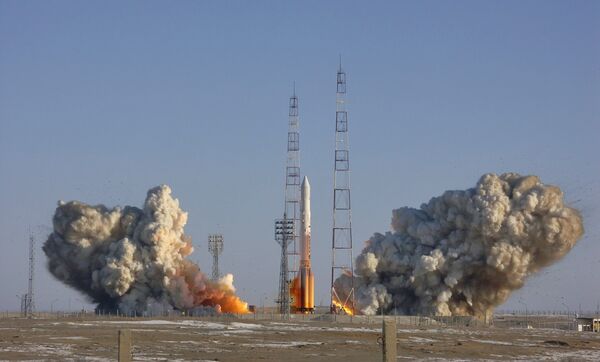The launch of a Proton-M carrier rocket bearing the European Eutelsat W7 satellite has been delayed, the Russian Federal Space Agency Roscosmos said on Monday.
The launch was scheduled for Monday from the Baikonur space center in Kazakhstan.
"The launch of the European space vehicle has been postponed by the Kazakh side for an indefinite period," Roscosmos said.
The agency also said that the reason for the delay was unclear, as the areas in which the rocket's spent parts would fall into had already been agreed on with Kazakh authorities.
"This is not the first time the launch of a spacecraft has been threatened with failure for reasons that do not depend on Russia," Roscosmos said.
According to unofficial data, however, the launch could take place on Tuesday, at 17:19 p.m. Moscow time (14:19 p.m. GMT).
Russian-American joint venture International Launch Services (ILS) had signed a contract with the Eutelsat satellite operator to launch the Eutelsat W7 to upgrade its existing satellite grouping.
The launch was expected to be the eighth Proton launch in 2009 and the 349th overall for the famed Russian carrier rocket.
Eutelsat W7 was manufactured by Thales Alenia Space on a Spacebus 4000C4 platform.
The 5.5-ton satellite features up to 74 Ku-band transponders (12 kW) and has a lifetime of about 15 years (up to 2024).
It will provide digital broadcasting for customers in Europe, including Russia, Africa, Central Asia and the Middle East.
Eutelsat W7 is designed to replace the SESAT 1 satellite, which has been in orbit since 2000.
MOSCOW, November 23 (RIA Novosti)




